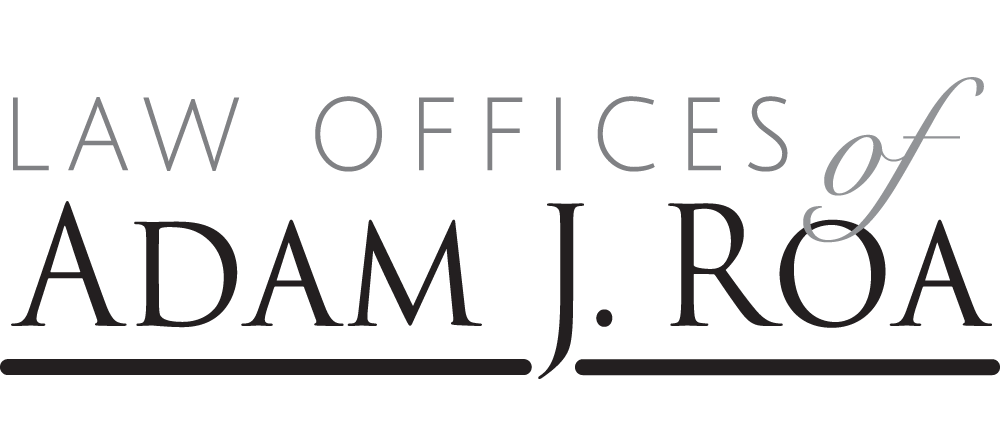
Probate
Losing a loved one is never easy. What happens next after a loved one passes? What do you do with the will? What if you can only find a photocopy? What if you do not know what is in the estate? What if you have been appointed as the personal representative in the will? What duties do you have and what liability is there for acting as personal representative?
Additionally, what are the “costs” associated with probate? What do I do with all this “stuff”? Which costs can be claimed against the estate and which cannot?
There are many nuances in probate law. Let a probate attorney help you streamline this process so that probate can be as smooth as possible.
Uncontested Probate
In most cases, the probate process is uncontested. But, for many people, even uncontested probate can be daunting. What forms do you need to complete? How do you obtain a probate bond? How do you determine the assets of a loved one?
Our firm has been focusing in elder law, including probate, since 2002. We can assist you and your family through the probate process. We will prepare all of the necessary documents for probate, including the related items.
We will either assist you or determine on our own which assets are at issue. We will also handle creditors so you do not need to take their harassing calls and letters. If a beneficiary has questions, we become the focus of the probate estate, not you.
Our firm does the heavy lifting in the probate process so your family can grieve while not getting stuck in the probate quagmire.
Adam J. Roa, Esq. as Personal Representative
In many instances, clients or relatives have asked Adam J. Roa, Esq., to serve as their primary or backup personal representative. This can be for various reasons. For example, a neutral third party can serve as an administrator for families with strong-willed personalities or that need someone who can manage the estate in a fair, efficient manner. The key for most clients is making the probate process as efficient and transparent for the beneficiaries as possible.
Contested Probate
In many cases, there will be disagreement as to the terms of the will or who gets what.
Let our office help in situations like these:
- If two siblings want their mom’s Civil War china, who gets it? What if it is not in the last will and testament? What if there is no last will and testament?
- What happens if the last will and testament is defective? If there is a fraudulent signature, someone influenced the decedent to sign, or the decedent was not competent when signing the will?
- What if an illegitimate child makes a claim against the estate?
- What if the appointed personal representative has failed in his duty and needs to be removed?
It is absolutely critical that our office become involved as soon as possible. If you file your complaint against the will too late, you will be forever barred from making a claim.
Probate Attorney
As an elder law firm, we handle probate matters on a routine basis.
Having a probate attorney familiar with the nuances of the Maryland probate process is your key to a smooth probate in an uncontested matter and to a successful outcome in a contested matter.
In an uncontested matter, an experienced probate attorney guides the family through the expected nuances and issues that normally arise in any probate process. Asset distribution, location of missing assets, creditor issues, burial issues, and personal property distribution issues are all normal for probate estates to encounter.
In a contested matter, an experienced probate attorney is essential in assessing the strengths and weaknesses of your will contest—whether there is a document execution issue, fraudulent signature, incompetency issue, or an issue of undue influence.
What happens if there was a mistake in the decedent’s last will and testament? Let an experienced probate attorney work through the post-death decision-making process to help correct mistakes. If beneficiaries are not cooperating, let an experienced probate attorney take the lead to obtain court authorization or fight to obtain a court determination to get the results you want.
Probate Law
The probate process is a process by which the Maryland Orphans court oversees and protects an estate, determines the validity of the last will and testament (if any), insures creditors are properly paid, and insures the beneficiaries receive what is entitled to them via the last will and testament or Maryland intestacy provisions.
What happens if you die without a last will and testament? In that case, the State of Maryland has a last will and testament for you. Probate law generally follows the pattern below.
If the deceased is survived by:
- Spouse and minor children of the decedent: the spouse receives one-half, and the children share remaining one-half.
- Spouse and children (all adult) of the decedent: the spouse receives $15,000 plus one-half of remaining estate, and the children divide the balance (the interest of a predeceased child passes to issue of that child).
- Children only of the decedent: the children (does not include stepchildren) divide the entire estate (the interest of a predeceased child passes to issue of that child).
- Spouse and parents of the decedent: the spouse receives $15,000 plus one-half of remaining estate, and both parents divide the balance, or the surviving parent takes the balance.
- Spouse of the decedent without other heirs listed above: the spouse receives the entire estate.
- Parents of the decedent without other heirs listed above: both parents divide the entire estate, or the surviving parent takes all.
- Brothers/sisters of the decedent without heirs listed above: the brothers and sisters divide the estate equally (share of deceased sibling goes to their issue, namely, nieces and nephews of the decedent).
- Grandparents without other heirs listed above: the grandparents divide the entire estate or, if deceased, to their issue (see applicable law for details).
- Great-grandparent without other heirs listed above: the great-grandparents divide entire estate or, if deceased, to their issue (see applicable law for details).
- Stepchildren: if there are no heirs listed above.
- No living heirs or stepchildren: If decedent was a recipient of long-term care benefits under the Maryland Medical Assistance Program at time of death, net estate is paid to Department of Health and Mental Hygiene. Otherwise, the net estate is paid to the Board of Education.
Key Terms in the Maryland Estate Process:
- Small Estate: Assets subject to administration valued at $50,000 or less ($100,000 if the spouse is the sole legatee or heir)
- Regular Estate: Assets subject to administration in excess of $50,000 ($100,000 if the spouse is the sole legatee or heir)
- Judicial probate: A probate proceeding conducted by the Orphans’ Court when the situation prohibits administrative probate. This usually arises when there is an issue as to the validity of the will, the will is damaged, there is more than one person applying for personal representative, or a request has been made to remove a personal representative.
- Administrative Probate: A proceeding that is initiated by an interested person with the Register of Wills for the appointment of a personal representative and for the probate of a will or the determination of intestacy of the decedent.
- Information Report: The document that reports all non-probate property. Non-probate property includes jointly held assets, life estate or remainder interests in a trust or deed, trusts in which the decedent had an interest, payable on death assets, and pension and benefit plans including IRAs with named beneficiaries.
- Interested person(s): The person(s) named as personal representative(s) in a will; the person(s) serving as personal representative(s); legatees; heirs (even if the decedent died intestate); trustee(s) of a testamentary trust; and court appointed guardian(s) for minors and adults with disabilities who are interested persons.
- Special Administrator: An administrator of an estate appointed by the court when it is necessary to protect and manage property prior to the appointment of a personal representative.
Probate Pitfalls

1. I can handle the probate process on my own.
For very small, simple estate, this firm will be the first to tell you to handle it on your own. We would be more than happy to point you in the right direction. But, for everyone else, there are untold nuances to the probate process. There are creditor issues (who should I pay first, when should I pay the creditors, do I have to pay the creditors), probate expense issues (is this an allowable probate expense, can I reimburse myself for my out-of-pocket expenses, what happens if I reimburse myself for expenses that were not allowable), and countless other issues.
2. Thinking there is no way to change an innocent mistake in a last will and testament.
Sometimes an improperly worded last will and testament may result in unintended consequences. A deceased son’s children may have been inadvertently left out of the will. Some mistakes can be addressed after someone has passed. There are a host of nuances with this process. If this is an issue, contact our office immediately, as there are very time sensitive criteria at issue.
3. My parents held everything jointly.
You should always consult an attorney regarding probate implications for the first spouse to pass. The attorney should review the status of all assets to determine the probate exposure. It is very common to have hidden assets or even a house that is either held solely by the first to pass or as a tenants in common interest.
4. My father left everything to his new girlfriend six months before he passed. There is nothing I can do.
There are a host of areas where one may challenge the submission of the will at issue for probate. However, the single biggest obstacle is timing. A claim to challenge the submission of a defective or otherwise challengeable will must be made within a certain time frame; otherwise, a claimant will be barred from making any challenge. If you are considering challenging the submission of a will, contact this firm immediately to ascertain whether or not you have a challengeable matter.
5. The Personal Representative of the Estate is not a responsible person, but there is nothing I can do.
There are a host of options available in this situation. The complexity of removing the personal representative depends on the outstanding issues in the case.
